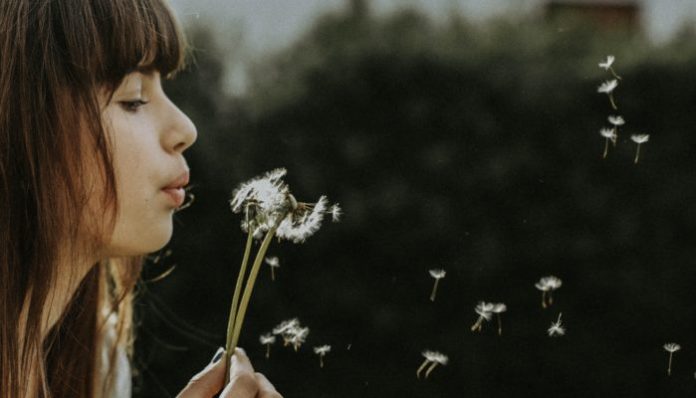
In January 2016, I wandered through 17 inches of snow with a special someone by my side. Dressed in our finest snow pants, puffy coats, and cotton beanies, we stood on a solitary bridge. I dropped to one knee and she said, “Yes.”
Then, Death came knocking…
Sleeping in a crowded bed
Shortly after our engagement, this new voice began showing up every evening for a heart-stopping split second. Night after night, the final thought that flashed in my mind was some version of the world without me in it.
Some nights had me imagine the deep despair my fiancée (now wife) would have to endure day in and day out after losing her partner way “too soon.” Other nights left me with a ferocious fear of never contributing anything significant to this world. And on, and on.
The thoughts, as nightmarishly present as they were just before falling asleep, were never heard from in the morning, so I carried on. It took some time before having a greater effect on my overall mental health, but a year of this madness was bound to make me crack.
I needed to find a healthy way to address this problem. I needed to listen to Death’s calls for attention and simply ask it, “Who are you?”
Letting Death Speak
Fortunately, I have a close friend who has been exploring Death in a deep and profound way. He has enrolled in Orphan Wisdom School put on by Stephen Jenkinson, author of Die Wise. My friend recommended I check out his book.
I wrote the recommendation down and saved it to my Amazon bookshelf. Naturally, it gathered virtual dust for a few months as my fall work schedule and wedding planning bombarded me with little time to pay this matter much attention.
The “nightmare circus”—the name I gave these deathly thoughts due to some odd association I made with Ray Bradbury’s Something Wicked This Way Comes—continued being as punctual as ever. As my eyes glazed over and my brain was ready to shift from theta to delta, the floodgates opened.
19 months was my limit. It was time to develop a new kind of knowledge.
I bought Die Wise and got to reading. Jenkinson’s attitude toward death and dying was right up my alley. He’s unafraid in questioning the seemingly unquestionable:
…Three people who had between them probably seen hundreds of children die, and all of them went along with this. Children aren’t supposed to die…If children do die—and they do the world over—then what are we saying about life when we say that they are not supposed to die? Are we saying that we don’t approve, or are we saying that it isn’t right, isn’t just, isn’t proper, isn’t natural that children die? If children aren’t supposed to die, then what does their dying mean? What is it about life that dying children prove? What does death mean when the ones who are dying are children?
…If children are not supposed to die, who is supposed to die? Where does this “supposed to” come from?
(Die Wise, p. 105–106)
Wow.
My cynical/pessimistic/realistic (feel free to choose your label) side was enthralled. What a powerful sequence of questions.
When are we “supposed to” die? At what age can we comfortably say, “I’ve seen and experienced what I’d like to here, let’s go.”
From Atheists to the most devout Muslims, there is a beautiful story we can claim as our truth that continues long after our hearts stop beating and brains stop thinking.
At 26 years old, I’ve never been shown how or what to think about dying, Death, and everything that comes with it. And, in a country where over 80% of people identify with one religion or another, we approach Death in a really bizarre way.
Funerals are overwhelmingly sad and our faith in life after death never shows up. Sure, we have our cliche phrases like “she’s in a better place now,” but our tears still shower our cheeks for days and weeks on end until the grieving period subsides.
If we are in such ruthless pursuit of getting to the holy gates (or whatever afterlife looks like for you), why wouldn’t leaving this life be a raucous celebration? Of course, this is a bit of an anomaly in the United States as many cultures around the world celebrate death in grand style.
But, 400 million people is a big anomaly.
I digress.
Since Die Wise was my first foray into Death’s lengthy biography, completing the book in a few sittings felt like the equivalent of cramming 10 years of mathematics into my head in a matter of weeks.
I need to learn what numbers (Death) are before I can start messing around with balancing complex equations (living into an entirely new way being—seeing life and death as inseparable topics of conversation).
I have to sift through all the unquestioned assumptions I bring to the conversation and break them down into digestible pieces. The first line of questions sits in the abstract. And, as I continue to explore Death’s story, these questions must be addressed before developing a more concrete relationship with Death itself:
1. What is Death?
2. Should I personify Death as I’ve done here?
3. Given its 100% probability of occurring, is Death a big deal?
4. What’s after Death?
5. Is Death an event or a state of being or something else? Is Death life?
6. Do I need to believe in something after Death to form a positive relationship with it today?
I do believe that last question is worth thinking about, regardless of your belief or disbelief in an afterlife. From Atheists to the most devout Muslims, there is a beautiful story we can claim as our truth that continues long after our hearts stop beating and brains stop thinking.
The story I’ve chosen to follow for now is rather simple:
From the stars we were born, we will soon return. —Call Me A Poet
If in fact energy can neither be created nor destroyed, then my human life will simply transfer to another energy vessel. I like to imagine what my energy will become when unabated by social constructs and the limitations of my conscience.
What do you choose?
Over the past year, my career coach has drilled the same question into my head over and over again—What do you choose? This is not a question meant to persuade or make you think there is a right or wrong answer. It is simply meant to show you have the freedom to make a choice.
In that spirit, I want to ask you, “What do you choose?” Would you like to form a new relationship with Death and search for Death’s serenity? Or, would you like to carry on with your current association with Death? Both decisions are the correct one as long as you are freely choosing without the negative pressures of external voices.
For me, this question came up in an unfortunate way as Death screamed at me (and still is) for 19 months straight. For you, it will likely show up differently, but the opportunity is the same.
If you decide to begin (or have already begun) this journey, I’d love to hear your story on what brought you down this path.
Featured image via Unsplash


















